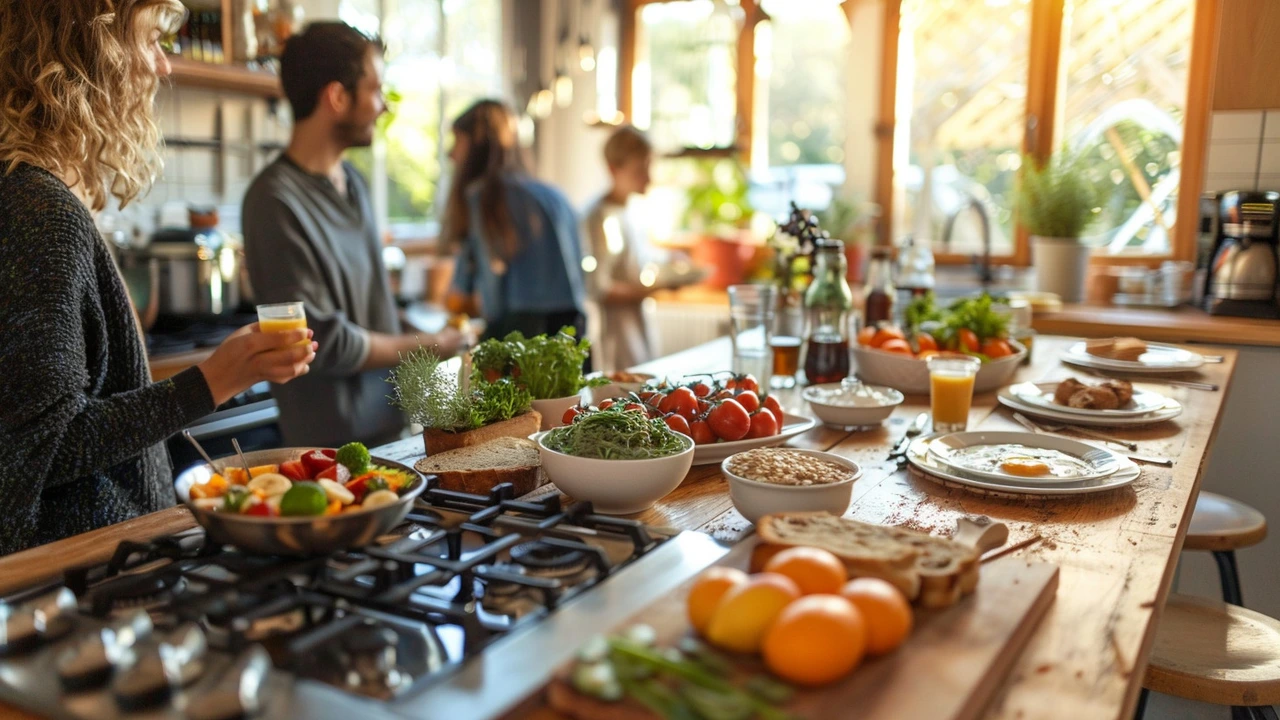Want a nutritious meal that actually fits your life—no long shopping lists, no weird ingredients? Good. Real nutrition is about simple combos that fuel energy, mood, and gut health. Below are clear ideas you can use today, plus quick recipes and practical prep tips.
Build every meal around three parts: protein, vegetables or fruit, and a whole grain or starchy veggie. Add a little healthy fat for flavor and satiety. That simple formula helps you stay full and keeps blood sugar steady.
Breakfast idea (under 10 minutes): Greek yogurt bowl with a handful of berries, 2 tbsp chopped nuts, and a spoon of oats. It’s high in protein, offers fiber, and keeps you full until lunch.
Lunch idea (10–15 minutes): Mason jar salad layered with greens, roasted chickpeas, chopped cucumber, quinoa, and a drizzle of olive oil + lemon. Shake and eat—no soggy greens if you keep dressing at the bottom.
Dinner idea (20–30 minutes): One-pan salmon with broccoli and sweet potato. Roast salmon fillets and cubed sweet potato at 425°F for 18–22 minutes; toss broccoli in the last 10 minutes. Season with garlic and lemon.
Snack ideas for steady energy: apple slices with peanut butter, a small handful of almonds and a clementine, or hummus with carrot sticks. These keep cravings away and pair protein with fiber.
Save time by prepping once or twice a week. Roast a tray of mixed vegetables, cook a batch of brown rice or quinoa, and grill or bake chicken breasts. Store in clear containers so you can build meals in under five minutes.
Overnight oats: Mix 1/2 cup oats, 3/4 cup milk (or dairy-free), 1 tbsp chia seeds, and a little honey. Top with banana in the morning. Cheap, portable, and balanced.
Mindful eating trick: before you start, rate your hunger 1–10. Eat when you’re 3–6, not just out of boredom. Put your phone away, chew slowly, and pause halfway. You’ll eat less and feel better afterward.
Simple swaps that matter: choose whole grains instead of refined (brown rice over white), swap sugary drinks for green tea or infused water, and add a serving of vegetables to every meal. Small changes add up.
If gut health matters to you: include fermented foods like yogurt, kefir, or a small side of sauerkraut a few times a week. Fiber from veggies, beans, and whole grains feeds good gut bacteria and helps metabolism.
Budget tip: frozen vegetables and fruits are just as nutritious as fresh and last longer. Canned beans are cheap protein when rinsed. Cook once, eat three times—use leftovers for wraps, bowls, or quick soups.
Pick one new habit this week: pack a balanced lunch twice, swap one snack for a protein option, or prep one dinner in advance. Small wins make nutritious meals a normal part of your week.

Starting your day with a nutritious breakfast can significantly influence your energy levels, mood, and productivity. This article delves into the importance of selecting the right foods for the first meal of the day to ensure sustained energy and wellness. Additionally, it will offer practical and tasty meal ideas that cater to various dietary preferences. By integrating these habits, you can optimize your morning routine and experience enhanced daily performance.
Read More